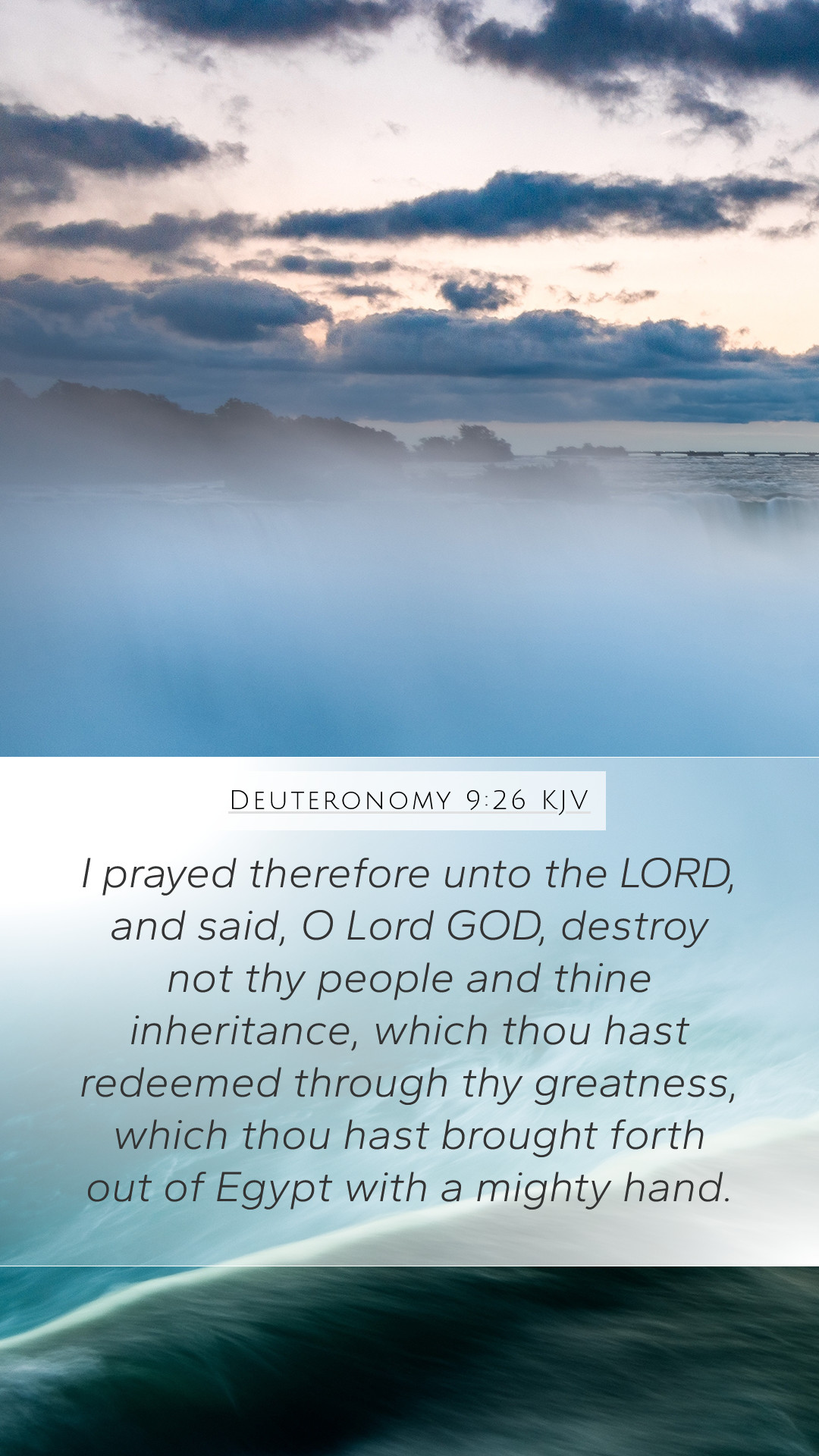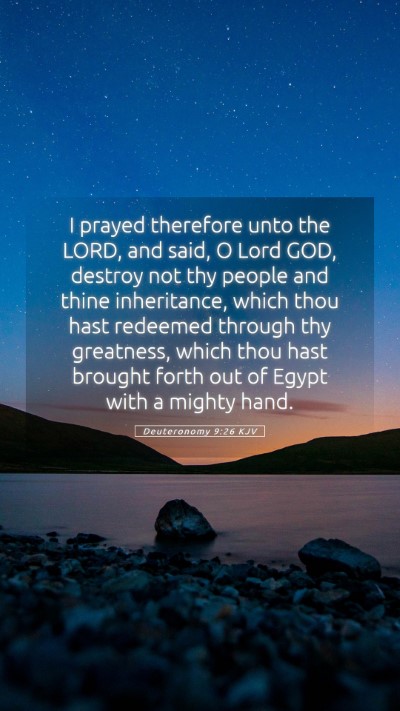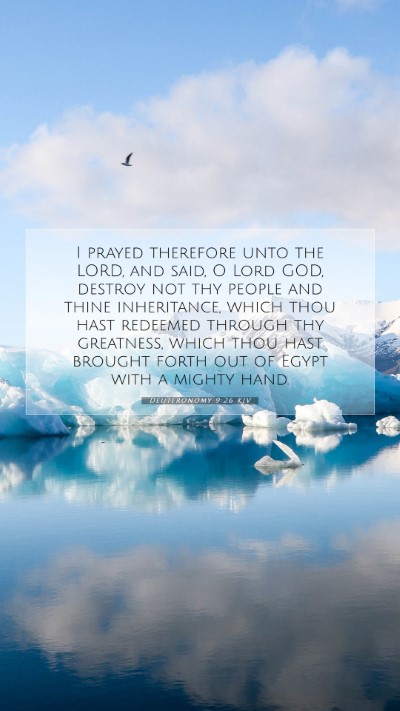Understanding Deuteronomy 9:26
Deuteronomy 9:26 states: "I prayed for them, saying: O Lord God, do not destroy your people, your inheritance, whom you have redeemed through Your greatness, whom You have brought out of Egypt with a mighty hand."
Bible Verse Meanings
This verse highlights the intercessory prayer of Moses on behalf of the Israelites. As they were in danger of incurring God's wrath due to their sinfulness, Moses appeals to God to remember His covenant and mercy.
Bible Verse Interpretations
Commentators like Matthew Henry emphasize Moses's role as a mediator between God and Israel, illustrating the importance of prayer in seeking God’s mercy. “Moses here pleads with God for the people, acknowledging their sin but highlighting God's greatness and the covenant made with their forefathers,” Henry notes.
Albert Barnes adds that Moses's appeal is based on God's past actions of redemption. This reminds us of God's faithful nature and His commitment to His people even in their failures.
Bible Verse Understanding
This plea encompasses several theological understandings:
- Intercession: The act of praying on behalf of others, which is a powerful theme throughout Scripture.
- Covenant Relationship: It underscores the bond between God and His people, reminding us of the promises made.
- Divine Mercy: There’s an emphasis on God’s willingness to forgive and restore His people rather than destroy them.
Bible Verse Explanations
Adam Clarke notes that Moses’s exclamations are not only about the immediate situation but relate to the character of God as a redeemer. Clarke emphasizes that God’s previous actions, which involved liberating the Israelites from the oppression of Egypt, serve as a reminder of His power and ability to save. This perspective teaches believers to remember God’s past mercies when facing present challenges.
Scripture Analysis
Deuteronomy 9:26 aligns with the broader narrative of the Israelite journey, reflecting the struggles and failures they faced. The verse serves as a poignant moment where Moses stands as a figure of leadership and intercession, drawing on the history of divine acts that demonstrate God's fierce love and commitment to His people.
Biblical Exegesis
The historical context shows that the Israelites constantly struggled with rebellion against God despite witnessing His miracles. This verse calls attention to the importance of remembering God’s saving acts as a basis for hope and continued faith.
Bible Study Insights
In studying this verse, believers can draw lessons on the nature of prayer, leadership, and faithfulness to God. It prompts self-reflection on personal prayers for others and reinforces the understanding of how to approach God during times of collective sinfulness.
Application of the Verse
For modern readers, Deuteronomy 9:26 serves as a reminder that:
- We need to be intercessors for others, understanding their struggles and lifting them up in prayer.
- We should remember God’s past faithfulness as we navigate our own challenges, drawing strength from His history of redemption.
- The importance of humility in acknowledging personal and communal sins while seeking God’s mercy.
Related Bible Cross References
- Exodus 32:11-14: Moses pleads with God not to destroy Israel after the golden calf incident.
- Numbers 14:13-19: Moses again intercedes for the people after they rebel against God.
- Psalm 106:23: This verse reflects on God's decision not to destroy Israel due to Moses's mediating prayers.
Conclusion
Deuteronomy 9:26 stands as a profound reminder of the importance of prayer and intercession within the community of faith. By understanding this verse and its implications, we gain insights into how to approach our relationship with God, embodying the role of a mediator and remembering His past mercies as we seek His continued grace in our lives.


